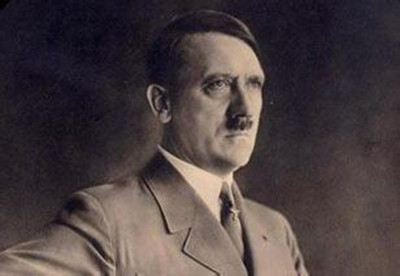希特勒的黑暗魅力—崛起的魅力(10)
日期:2015-10-30 19:04
(单词翻译:单击)
Harsh and theatrical as his speeches appear to us today, at the time, his performances soon got him noticed in Munich.
尽管现在看来,他的演讲夸张做作,但在当时的慕尼黑,他很快受到关注。
He seemed to be able to express the anger many people felt, as well as their desire to blame someone else for the problems Germany faced-particularly the Jews.
他似乎能为人们找到泄愤的出口,也能煽动民众将德国的困境归咎于某个群体,特别是犹太人。
This speech, from 1933 shows how Hitler's own hatred connected with the audience.
从1933年的演讲中可看出,他如何让自己的仇恨与观众产生共鸣。
Many now shared Hitler's warped prejudices, and his intolerance was taken as strength of character.
当时许多人有这种扭曲偏见,对犹太人的厌恶,成为他的优势。


重点单词

